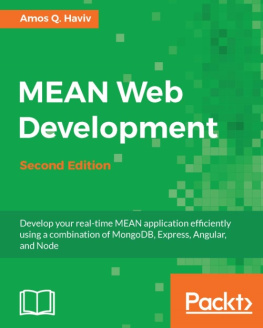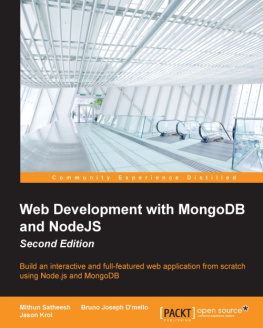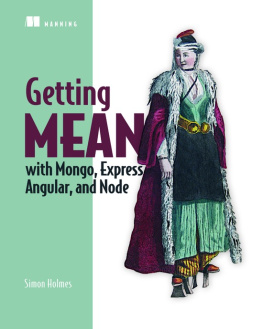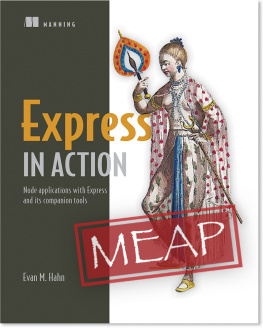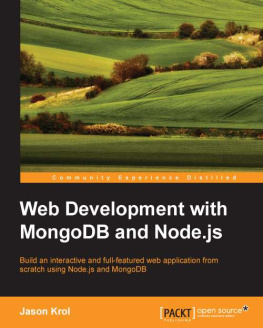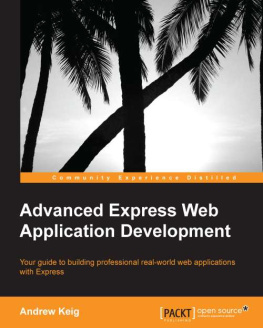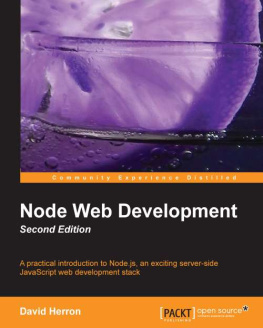Haviv - MEAN web development develop your real-time MEAN application efficiently using a combination of MongoDB, Express, Angular, and Node
Here you can read online Haviv - MEAN web development develop your real-time MEAN application efficiently using a combination of MongoDB, Express, Angular, and Node full text of the book (entire story) in english for free. Download pdf and epub, get meaning, cover and reviews about this ebook. City: Birmingham, year: 2016, publisher: Packt Publishing, genre: Computer. Description of the work, (preface) as well as reviews are available. Best literature library LitArk.com created for fans of good reading and offers a wide selection of genres:
Romance novel
Science fiction
Adventure
Detective
Science
History
Home and family
Prose
Art
Politics
Computer
Non-fiction
Religion
Business
Children
Humor
Choose a favorite category and find really read worthwhile books. Enjoy immersion in the world of imagination, feel the emotions of the characters or learn something new for yourself, make an fascinating discovery.
MEAN web development develop your real-time MEAN application efficiently using a combination of MongoDB, Express, Angular, and Node: summary, description and annotation
We offer to read an annotation, description, summary or preface (depends on what the author of the book "MEAN web development develop your real-time MEAN application efficiently using a combination of MongoDB, Express, Angular, and Node" wrote himself). If you haven't found the necessary information about the book — write in the comments, we will try to find it.
Develop your real-time MEAN application efficiently using a combination of MongoDB, Express, Angular, and Node
About This Book
- Harness the power of the JavaScript ecosystem to effectively run, build, and test your MEAN application
- Gain a deep, practical understanding of real-time web application development through real-world examples
Who This Book Is For
If you are a JavaScript developer who is interested in building modern web applications using MongoDB, Express, Angular 2, and Node 5.0, then this book is for you. You only need knowledge of JavaScript development.
What You Will Learn
- Use MongoDB to store and retrieve your applications data
- Connect your Express application to MongoDB and use the Mongoose module
- Manage your users authentication and offer them diverse login options using Passport
- Structure...
Haviv: author's other books
Who wrote MEAN web development develop your real-time MEAN application efficiently using a combination of MongoDB, Express, Angular, and Node? Find out the surname, the name of the author of the book and a list of all author's works by series.

